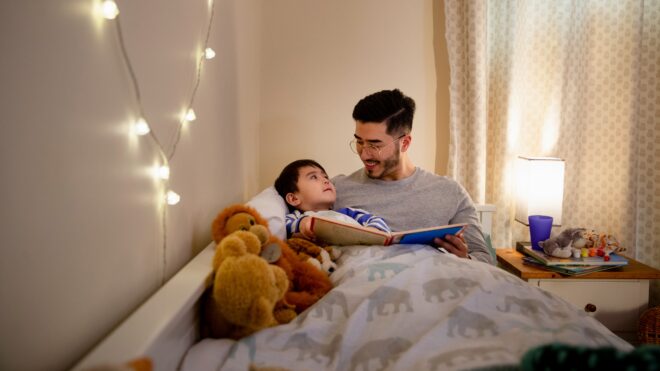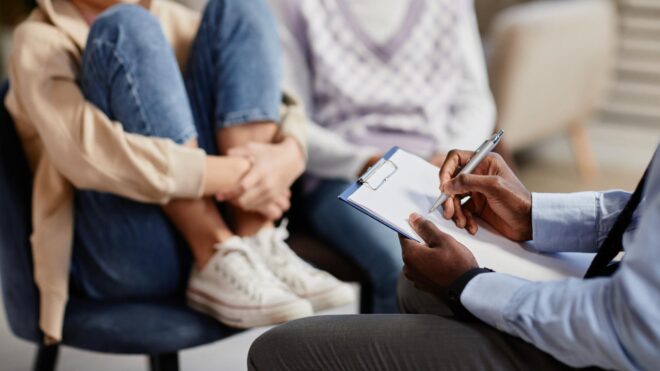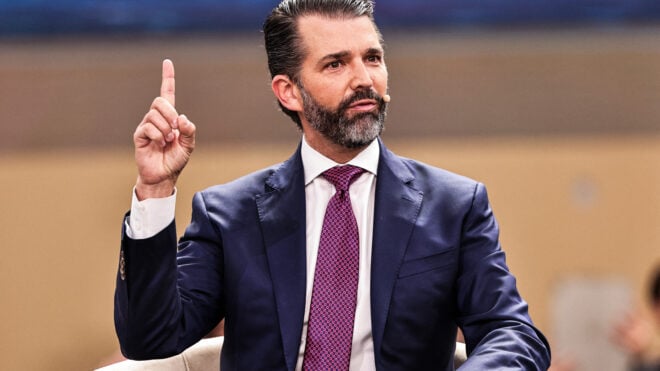
It’s never too early to model positive mental health habits and create safe spaces for everyone in the family to talk about their feelings, according to Courtney Billington, president of Janssen Neuroscience, mental health advocate, and father of three. Resilient kids will be able to handle the ups and downs of life.
“We need to encourage them, show them love, and set an example of what mental health self-care looks like,” Billington tells LittleThings.
Billington has experience dealing with family and mental health. He shares, “My father passed away a few years ago from dementia, and I saw firsthand the significant impact that mental illness can have on a loved one. I also have several family members living with serious mental illness, many of whom did not receive the care and support they needed because of the stigma associated with mental illness. We need to continue to normalize the conversation around mental health and improve access to treatment and care. There is more work to be done, but what motivates me is knowing that my team at Janssen Neuroscience is working hard to help heal minds and bodies and restore hope for people living with mental illness.”
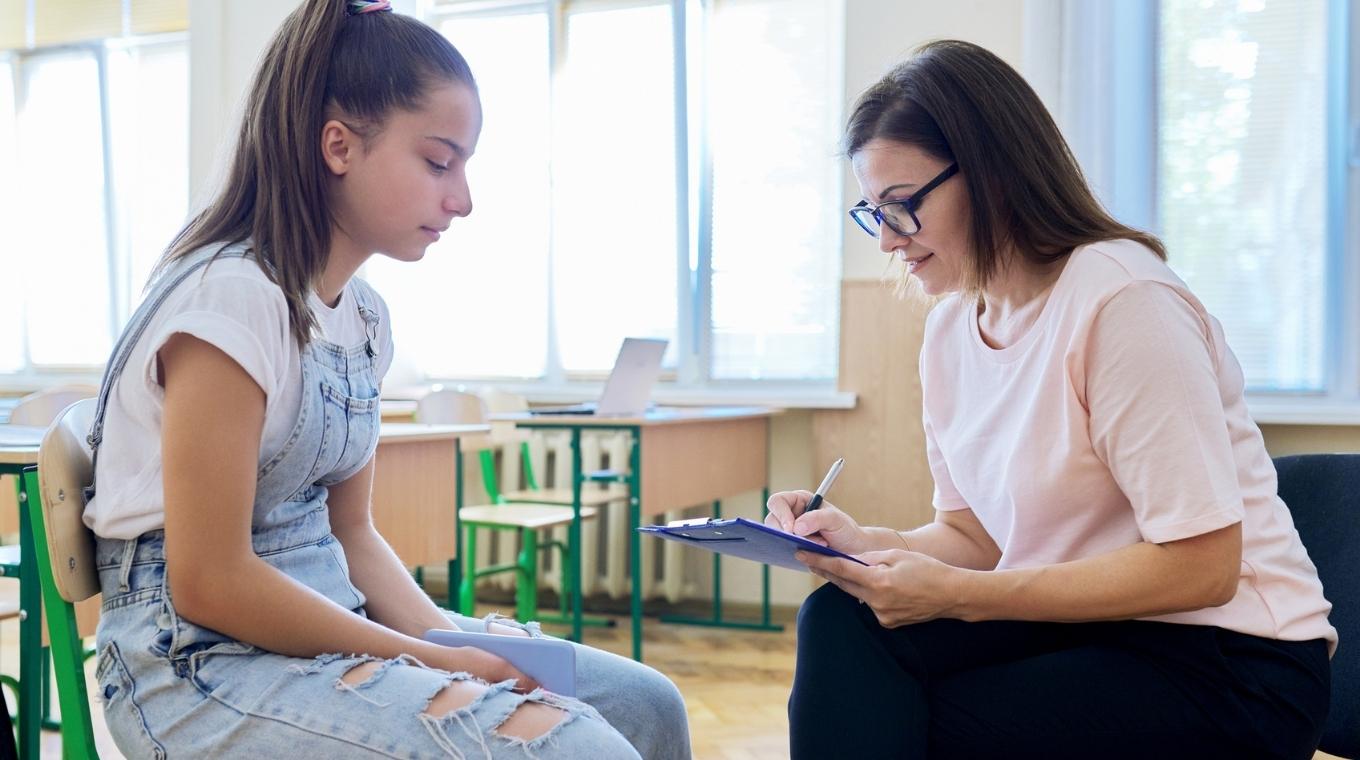
Billington points to research, saying, “We know that for many people, mental health conditions often start in young adulthood. In fact, a recent study from UCSF published in the Journal of Adolescent Health found that nearly half (48%) of young adults (ages 18 to 25) reported mental health symptoms during the pandemic, and 36% of those who reported symptoms also reported unmet counseling or therapy needs. It’s crucial to properly and proactively acknowledge the mental health of young adults and how it impacts them as they continue to grow and develop.”
He reminds us, “We want the next generation to be set up for success and grow into resilient leaders who can tackle the world’s greatest challenges. That means ensuring access to a diverse set of opportunities, mentors, and mental health resources. The last few years have been filled with uncertainty, fear, and acts of hate and violence, so it’s more important than ever for parents to prioritize the mental health and well-being of everyone in their family, and ensure we give them the right tools and resources to succeed and live fulfilling lives.”
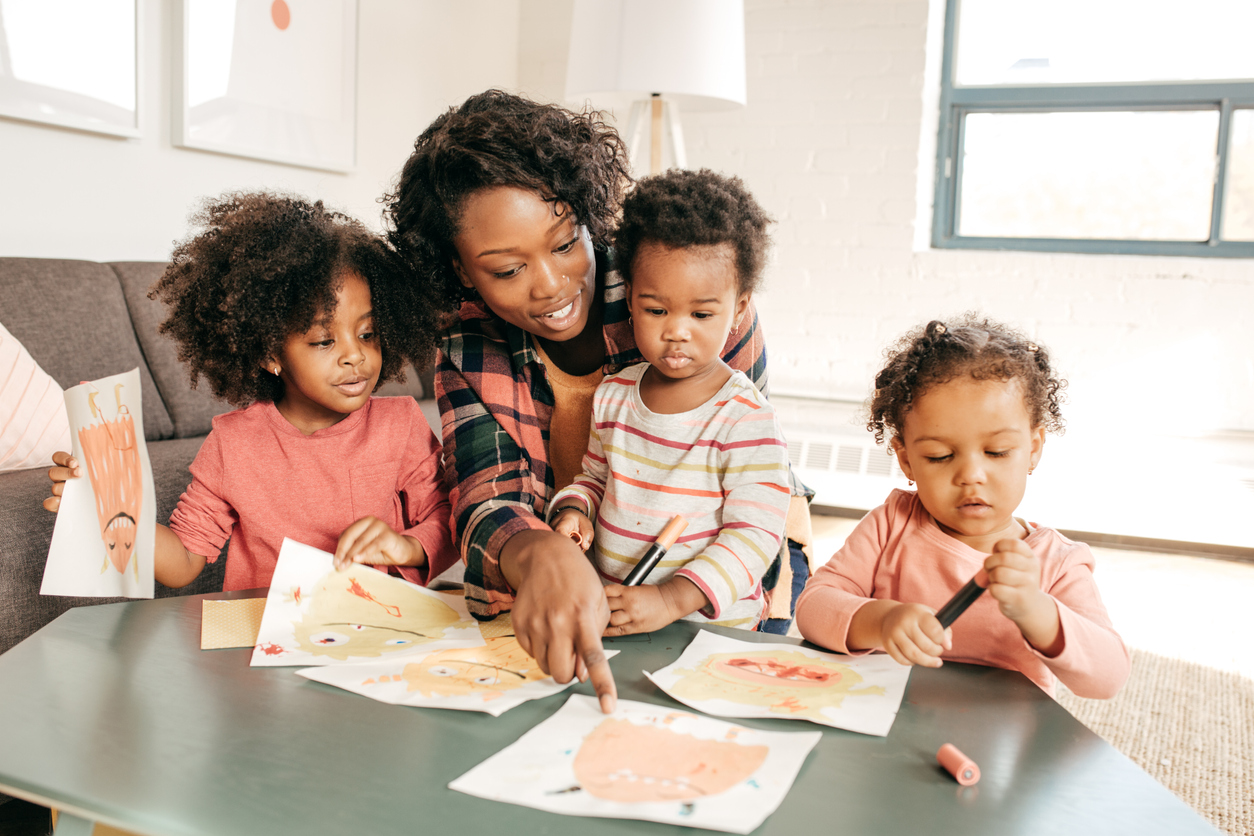
Billington advocates for African Americans and their mental health, saying, "While mental health stigma is pervasive across all communities regardless of race or ethnicity, studies have shown that stigma is slightly higher in the Black community, with 63% of Black people indicating that a mental health condition is a sign of 'personal weakness'. Because of this, only one in three Black adults who need mental health care receives it, and when they are able to access mental health services, they often receive inadequate care due to historic and ongoing systemic disparities in access.
"As a Black man who grew up in a faith-based home, I know firsthand the cultural taboo and stigma surrounding mental health. The way we can break down the stigma is to normalize talking about our mental health, support others who open up about their struggles, and advocate for better access to mental health care."
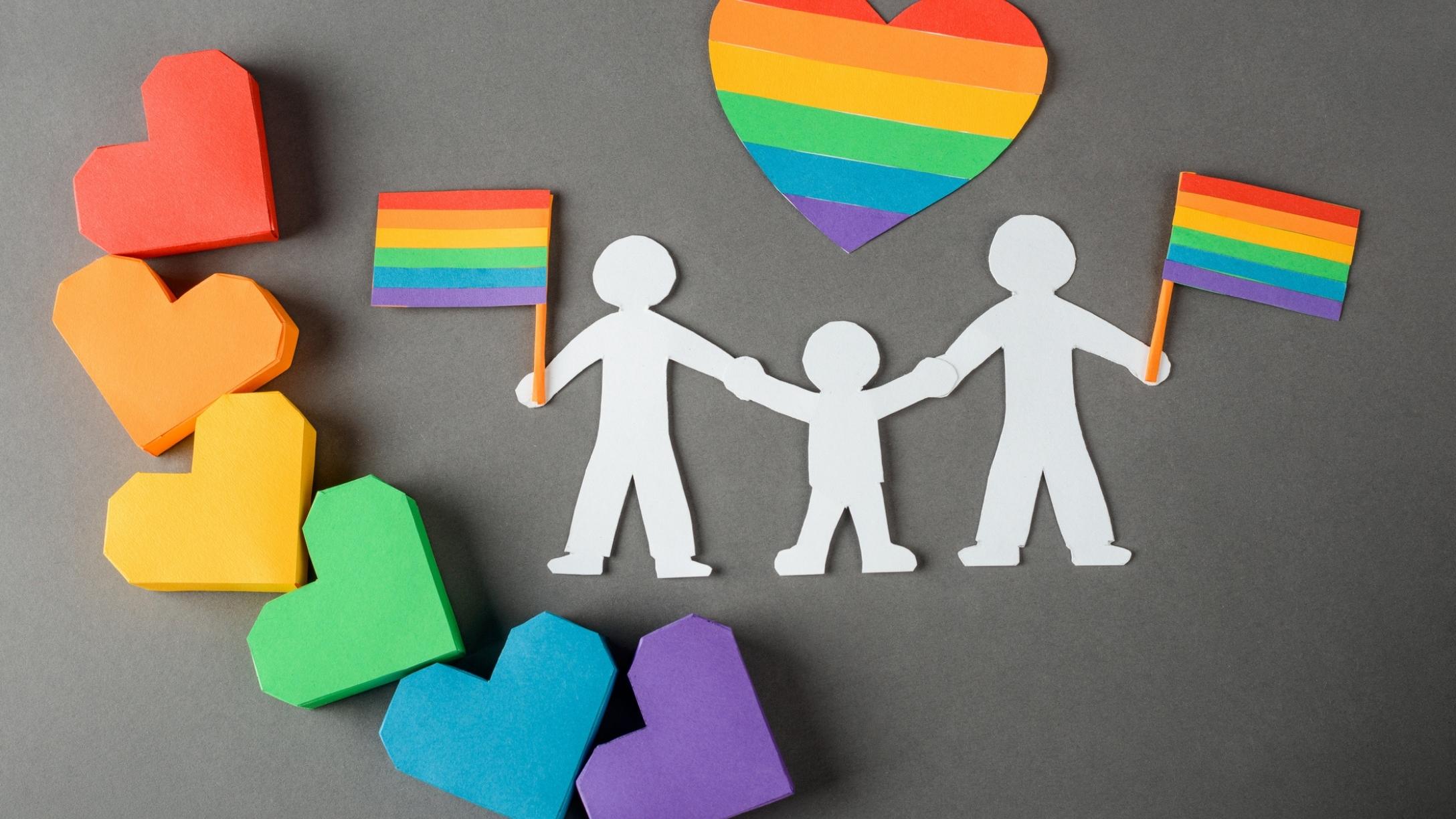
He also notes, “The LGBTQ+ community is another population that experiences significant mental health challenges due to stigma and lack of culturally competent care. As a result, many in this community do not get diagnosed or treated, and they often suffer in silence. Through Depression Looks Like Me, an effort to amplify the unique experiences of the LGBTQ+ community, we assure people that they’re not alone if they’re living with a mental illness. This website also serves as one-stop shop for resources that specifically support people who are LGBTQ+, ranging from places to find inclusive therapists to 24/7 live hotlines.”
Breaking the stigmas begins with how we raise our kids. You can begin with modeling your own self-care to your kids. Billington says, “My family knows that I have certain nonnegotiables when it comes to managing my own mental health on a daily basis. This includes carving out time to exercise and meditate, both of which help me feel centered and focused throughout the day. We must ensure we are modeling positive habits and holding oneself accountable to a consistent mental health routine, which will encourage our family to do the same.”
Before we can support our kids on their journey, Billington says, “The first step is educating ourselves on how to recognize the signs and symptoms of deteriorating mental health. Are we seeing differences in sleep habits? Is there trouble focusing in school or in social situations? Have eating habits changed?”
He notes, “It’s important that we start teaching that mental health is just as important as physical health. For example, if there are feelings of anxiety or sadness, we can explain that it’s important to pay attention to these feelings, just as we would pay attention to physical health symptoms, such as a cough or fever. Regular mental health check-ins can also help parents take an active role in monitoring these feelings. If symptoms persist, then it’s important to seek care and counsel from a medical professional. Ultimately, we want everyone to have the tools they need to best take care of their mental health, and that starts with early intervention.”
Billington continues, "From working with NAMI (National Alliance on Mental Illness) on our mental health and health equity initiatives, I’ve learned that fostering an open dialogue and active listening go a long way in making loved ones feel supported. You don’t have to be an expert to let them know you care and are there to listen. It’s important that they feel they have a safe space to express how they are feeling, that they feel heard, and that all of their feelings, even the scary ones, are perceived as valid and normal."
He notes, “Life is full of ups and downs, and it’s important that we ensure the next generation has the tools to process the challenges and disappointments they will inevitably face. The earlier they learn that ‘failure’ in their eyes is an opportunity to grow, evolve, and learn from their missteps, the more prepared they will be to navigate life’s challenges and eventually overcome those hurdles.”
Billington quotes Maya Angelou’s famous words, “I’ve learned that people will forget what you said, people will forget what you did, but people will never forget how you made them feel.” He explains, “This quote speaks to my values, my faith, and my role as a father. It’s a reminder of the type of father I want to be and the powerful impact that parents can have in making everyone in the family feel heard, special, and understood. I believe the key to raising caring, empathetic, and compassionate humans starts by exemplifying these traits early on in a person’s life, just like my father did with me. When we acknowledge and validate people’s feelings, they feel safe expressing their emotions and can then support others who are struggling.”

